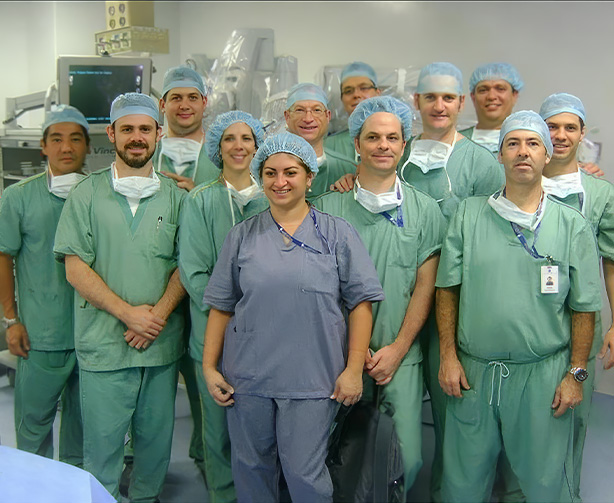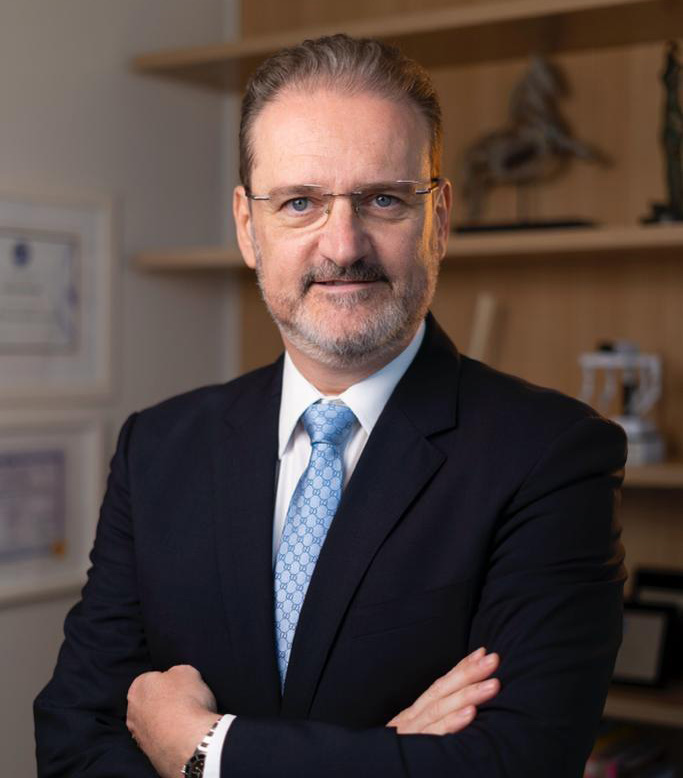15 years of experience
Team Responsible for the First Robotic Heart Surgery in Latin America

In 2010, the Poffo Institute of Cardiovascular Surgery began its Robotic Cardiac Surgery program with the first case performed in Latin America. Since then, it has established itself in Brazil as the only team with 15 years of experience in the field.
By completing all the stages of this training course, the surgeon will be eligible to apply to the Brazilian College of Surgeons (CBC) for the Robotic Surgery Certification, issued in partnership with the Brazilian Medical Association (AMB). This certification can only be obtained after completing all training stages at a CBC-accredited center.
Dr. Robinson Poffo is the only tutor in robotic cardiac surgery recognized by the CBC, enabling complete and accredited training for the student at the end of all course stages (AMB).

The program will be divided into two phases: theoretical and clinical. The theoretical phase can be taken by Cardiovascular Surgery Residents in their final year of training, provided they are enrolled in programs recognized by the Ministry of Education (MEC) or the Brazilian Society of Cardiovascular Surgery (SBCCV), as well as by cardiac surgeons who have completed MEC residency or hold a Specialist Qualification Registry (RQE) recognized by the Regional Medical Council (CRM).Já a fase clínica destinar-se-á apenas aos cirurgiões cardíacos já titulados com residência MEC concluída ou com Registro de Qualificação de Especialista (RQE) reconhecido pelo Conselho Regional de Medicina (CRM) e Associação Médica Brasileira (AMB).
Upon successful completion of the Theoretical and Clinical Phases of this Robotic Cardiac Surgery Training Program, the student will be eligible to apply to the CBC (Brazilian College of Surgeons) for the Robotic Surgery Proficiency Certificate, issued in partnership with the AMB (Brazilian Medical Association).
To support this, the Poffo Institute will provide a certificate signed by the CBC Cardiac Surgeon Tutor, Dr. Robinson Poffo, the coordinator responsible for the CBC Simulation Center, Dr. Gustavo Guimarães, and the program supervisor, Dr. Sérgio Curcio. In addition, all necessary forms and detailed reports required to verify the completion of the essential steps for obtaining the certificate from the College of Surgeons will be provided.
It is important to note that the approval for obtaining the certificate is entirely the responsibility of the candidate, who must submit the documentation generated after completing this program directly to the CBC. Furthermore, the final approval of the candidate for the certificate is entirely at the discretion of the CBC’s evaluation committee, without any possibility of interference from the Poffo Institute.